Trump’s Executive Orders Spark Comparisons to Post-9/11 Policies
By Janet Howard | Editorial credit: Copyright Lawrey/ shutterstock.com
President Donald Trump’s Executive orders have reignited discussions about similar policies, drawing parallels to post-9/11 actions.
Introduction
The September 11, 2001, attacks on the World Trade Center profoundly impacted U.S. policies, particularly concerning the treatment and perception of Muslim communities. In the aftermath, the government implemented measures like the National Security Entry-Exit Registration System (NSEERS), which mandated the registration of individuals from specific countries, predominantly Muslim-majority nations. Fast forward to January 2025, President Donald Trump’s executive orders have reignited discussions about similar policies, drawing parallels to post-9/11 actions. This article delves into the effects of the 9/11 attacks on Muslim registration, examines the implications of President Trump’s 2025 executive orders, and compares the two periods to understand the evolving landscape of civil liberties and national security in the United States.
Impact of the September 11, 2001, Attacks on Muslim Registration
In the wake of the September 11 attacks, the U.S. government intensified its focus on national security, leading to policies that disproportionately affected Muslim communities. One of the most significant initiatives was the introduction of the National Security Entry-Exit Registration System (NSEERS) in September 2002.
NSEERS required non-citizen males aged 16 and older from 25 designated countries to register with the Immigration and Naturalization Service (INS). Notably, 24 of these countries were predominantly Muslim, leading to criticisms that the program targeted individuals based on religion and ethnicity.
The implementation of NSEERS had profound effects on Muslim communities across the United States. In Brooklyn, New York, for instance, the program led to significant demographic shifts. Fear of deportation prompted many families to leave the area, resulting in noticeable declines in school enrollments and the closure of several businesses.
Despite its extensive reach, NSEERS faced substantial criticism for its effectiveness and ethical implications. By May 2003, while over 82,000 individuals had registered, the program did not yield significant terrorism-related convictions. Critics argued that it eroded trust between Muslim communities and law enforcement agencies, fostering feelings of alienation and second-class citizenship among Muslims in America.
President Trump’s 2025 Executive Orders on Registration
In January 2025, President Donald Trump signed a series of executive orders that have drawn comparisons to post-9/11 policies. Among these, the reinstatement of a travel ban targeting predominantly Muslim countries has been particularly contentious.
Civil rights groups have expressed concerns that these measures could lead to a resurgence of discriminatory practices reminiscent of the NSEERS program. The executive orders aim to enhance national security by imposing stricter vetting processes and travel restrictions. However, opponents argue that such policies unjustly target specific religious and ethnic groups, potentially leading to increased instances of profiling and discrimination.
Comparative Analysis
While both the post-9/11 policies and President Trump’s 2025 executive orders were implemented under the premise of national security, their approaches and societal impacts exhibit notable differences and similarities.
Scope and Implementation
NSEERS was a registration system requiring individuals from specific countries to provide detailed personal information to authorities. In contrast, the 2025 executive orders focus on restricting entry into the United States from certain countries and enhancing vetting procedures. While NSEERS involved domestic monitoring, the current executive orders primarily affect international travel and immigration processes.
Public Perception and Community Impact
Both sets of policies have faced criticism for fostering discrimination against Muslim communities. After 9/11, Muslims in America experienced increased scrutiny, surveillance, and a rise in hate crimes. Similarly, the 2025 executive orders have raised concerns about stigmatizing Muslim populations, potentially leading to social alienation and civil rights infringements.
Legal Challenges and Civil Liberties
The NSEERS program was eventually suspended and dismantled due to its controversial nature and questions about its efficacy. Likewise, President Trump’s executive orders are anticipated to face legal challenges on grounds of religious discrimination and constitutional rights violations. The balance between ensuring national security and upholding civil liberties remains a contentious issue in both scenarios.
Conclusion
The aftermath of the September 11 attacks and the executive actions in 2025 under President Trump highlight the ongoing struggle to balance national security concerns with the protection of civil liberties. Both periods demonstrate how policies targeting specific groups can lead to social fragmentation and erode trust between communities and the government. As the United States continues to navigate these complex issues, it is imperative to learn from past experiences to foster policies that ensure security while upholding the principles of equality and justice for all individuals, regardless of their religious or ethnic backgrounds.

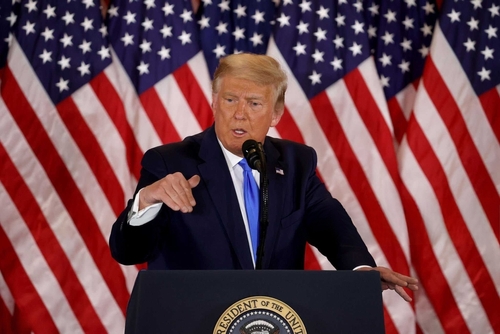



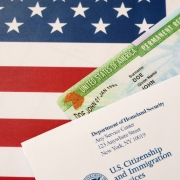
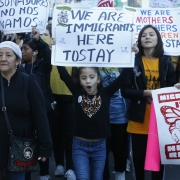
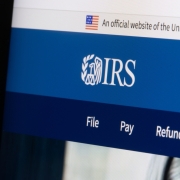
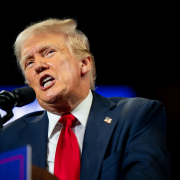



Leave a Reply
Want to join the discussion?Feel free to contribute!